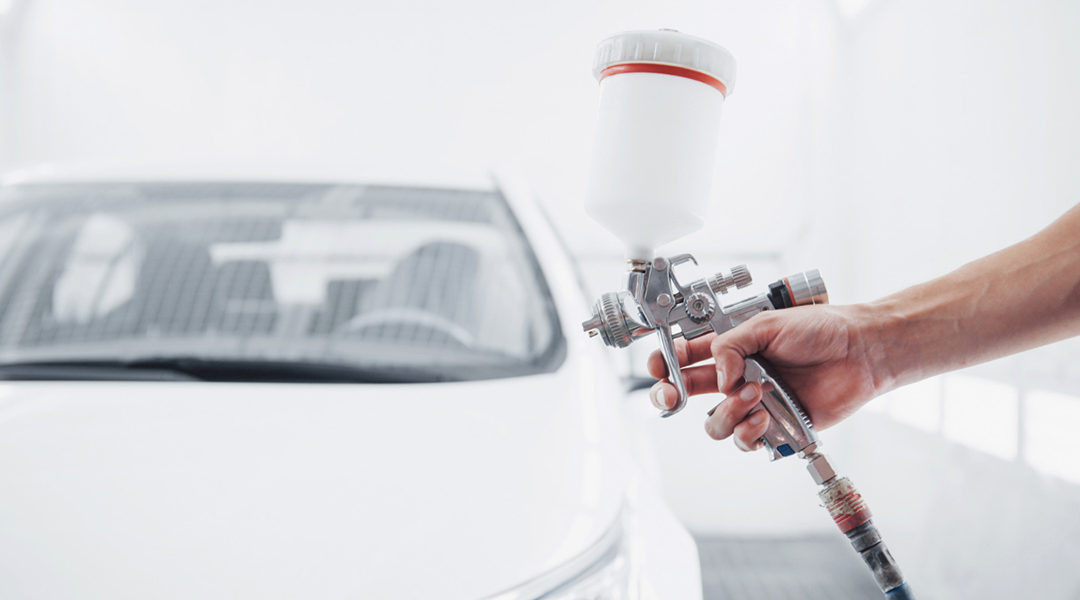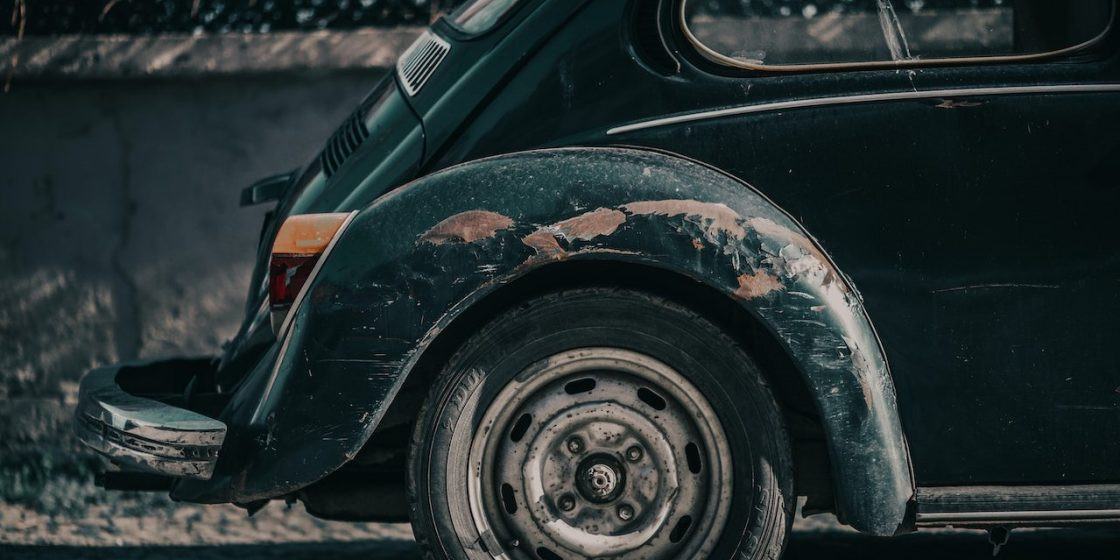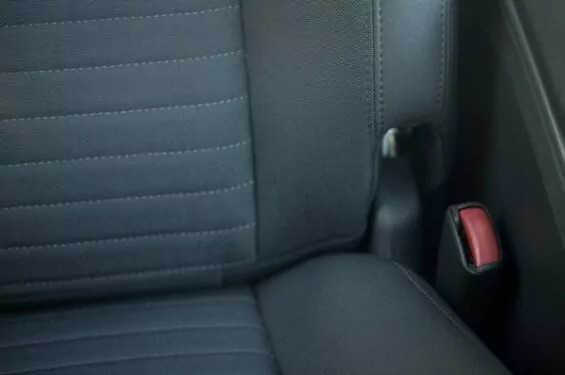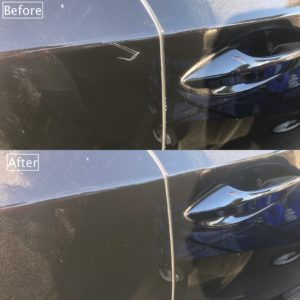Can I Get My Car Fixed Through Insurance: Your Complete Guide
Can I Get My Car Fixed Through Insurance? Absolutely, and CARDIAGTECH.NET is here to guide you through the process, ensuring you understand your coverage and options for a seamless repair experience. We’ll explore how your auto insurance policy can help cover vehicle repairs and connect you with the resources you need, offering expert advice on auto repair, insurance claims, and collision repair.
1. Where Can I Take My Car to Get It Repaired?
You have the freedom to choose any repair shop you trust. There are no restrictions on where you can get your car fixed. Whether it’s a dealership or a specialized repair shop, the choice is yours. The shop your car was towed to doesn’t have to be the one that repairs it. This flexibility ensures you can select a mechanic you trust, potentially leading to better service and satisfaction.
- Choosing the Right Shop: Selecting a repair shop involves considering factors like reputation, certifications (such as ASE), and customer reviews.
- Dealer vs. Independent: Dealerships often specialize in specific brands, while independent shops may offer broader services.
- CARDIAGTECH.NET Suggestion: When choosing an auto repair shop, consider one that uses high-quality tools and equipment to ensure a precise and durable repair. Check out the advanced diagnostic tools and auto repair equipment at CARDIAGTECH.NET to get an idea of what top-notch shops use.
2. Is It Legal for Insurance Companies to Provide a List of Repair Shops?
Yes, insurance companies can provide a list of preferred repair shops, but you are not obligated to use them. Insurers often have contractual agreements with these shops to fix vehicles at a lower cost.
- Preferred Repair Shops: Insurers may suggest shops that offer discounted rates due to a prior agreement.
- Your Right to Choose: You always have the right to choose your own repair shop, regardless of the insurer’s list.
- Potential Benefits: Preferred shops may offer benefits like quicker service or guaranteed repairs.
- CARDIAGTECH.NET Suggestion: Before making a decision, research shops on the list and compare them to other local options. Don’t be pressured into choosing a shop solely based on the insurance company’s recommendation.
3. Can a Repair Shop Charge More Than the Insurance Company Will Pay?
Yes, a repair shop can charge more than what the insurance company is willing to pay. Often, the shop and insurer will agree on a repair price. If they can’t, you can ask the insurer to reevaluate the estimate. However, you might have to cover the difference between the shop’s labor rate and what the insurer is willing to pay. The Insurance Department does not regulate labor rates.
- Negotiation is Key: Encourage the repair shop and insurer to communicate and negotiate a fair price.
- Understanding Labor Rates: Labor rates can vary widely, so research typical rates in your area.
- CARDIAGTECH.NET Suggestion: Ensure your chosen repair shop uses advanced diagnostic tools to accurately assess the damage and provide a transparent estimate. Shops equipped with tools from CARDIAGTECH.NET can often justify their rates with the precision and efficiency of their work.
4. How Can I Avoid Paying the Difference Between the Repair Shop and Insurance Company’s Estimates?
To avoid paying the difference, ensure no repairs begin until the insurance company and repair shop agree on a price in writing. If they can’t agree, you have options: pay out-of-pocket or file a complaint with the Insurance Department’s Consumer Affairs Division.
- Get Written Confirmation: Always get a written agreement on the repair costs before any work begins.
- Consider Multiple Estimates: Obtain estimates from several repair shops to compare pricing.
- CARDIAGTECH.NET Suggestion: If discrepancies arise, it may be due to the repair shop using more advanced or specialized equipment. Ask the shop if they use tools from CARDIAGTECH.NET, which can ensure high-quality repairs that justify the cost.
5. Is There a Way to Resolve Disagreements with the Insurance Company Without Going to Court?
Yes, filing a complaint with the Insurance Department’s Consumer Affairs Division can provide access to an arbitration program to settle disputes without court. This applies to auto physical damage claims where coverage and liability aren’t disputed, and the issue is the amount of damages.
- Arbitration Programs: These programs offer a neutral third party to mediate and resolve disputes.
- Filing a Complaint: Start by filing a formal complaint with your state’s Insurance Department.
- Eligibility: Ensure your claim meets the criteria for arbitration, such as undisputed liability and coverage.
- CARDIAGTECH.NET Suggestion: Document all communications, estimates, and repair details. High-quality repairs using equipment from CARDIAGTECH.NET can strengthen your case by demonstrating the necessity and value of the work.
6. Can a Third-Party Provider of Services Use the Department’s Arbitration Program?
No, only the claimant can elect to arbitrate an automobile physical damage or property damage liability claim dispute, as per Conn. Gen. Stat. section 38a-9 and Conn. Agencies Regs. section 38a-10-1 et seq. Third-party providers may offer technical assistance or act as experts in the arbitration.
- Claimant’s Rights: The right to arbitrate rests solely with the policyholder or claimant.
- Third-Party Role: Repair shops can support the claimant by providing expert opinions and documentation.
- CARDIAGTECH.NET Suggestion: Ensure that any expert assistance you receive includes a detailed explanation of the repair process and the tools used, potentially highlighting advanced equipment from CARDIAGTECH.NET to justify the costs.
7. What Happens If Another Driver Is at Fault for the Damage to My Car?
If another driver is at fault, and their insurer refuses to pay the full labor rate, you may be eligible for the arbitration program. You can also sue the other driver for the difference. Arbitration is considered after filing a complaint with the Department’s Consumer Affairs Division.
- Liability Claims: When another driver is at fault, their insurance should cover the damages.
- Filing a Lawsuit: Suing the at-fault driver can recover costs not covered by insurance.
- CARDIAGTECH.NET Suggestion: Collect all evidence, including photos, police reports, and repair estimates. A detailed estimate from a shop using CARDIAGTECH.NET tools can provide a strong basis for your claim.
8. What Does It Mean If My Vehicle Is “Totaled”?
If your car is “totaled,” the cost to repair it exceeds its value as determined by the insurance company. For instance, if repairs cost $1,000 and the car is worth $500, the insurer pays you $500 plus sales tax and keeps the vehicle.
- Total Loss Threshold: This threshold varies by state but generally involves a cost-to-value ratio.
- Insurance Payout: The insurer compensates you for the car’s value, not the repair cost.
- CARDIAGTECH.NET Suggestion: Understand how insurers calculate a car’s value to ensure a fair settlement. Independent valuations may help you negotiate a better payout.
9. How Can I Be Sure of the Value of My Vehicle?
Request written paperwork from the insurance company detailing how they determined your vehicle’s value. Insurers must use at least the average of retail values from the NADA Used Car Guide and another approved industry source. Disagreements can lead to arbitration.
- Valuation Methods: Insurers use industry guides and market analysis to assess vehicle value.
- Review the Paperwork: Scrutinize the insurer’s valuation report for accuracy.
- Independent Appraisal: Consider getting an independent appraisal to contest the insurer’s valuation.
- CARDIAGTECH.NET Suggestion: Research the value of your car using multiple sources and present this information to the insurer. Highlighting any unique features or recent upgrades can also increase the assessed value.
10. Can I Still Have My “Totaled” Vehicle Repaired and Keep It?
Yes, you can repair a totaled vehicle and keep it, but the insurance company will only pay you the car’s value minus its salvage value. You cover the remaining repair costs. The title will be stamped “salvage,” and the Department of Motor Vehicles will reinspect it before it’s road-legal.
- Salvage Title: A salvage title indicates the vehicle was declared a total loss.
- DMV Inspection: The inspection ensures the vehicle meets safety standards after repairs.
- CARDIAGTECH.NET Suggestion: Evaluate the total cost, including the reduced insurance payout, repair expenses, and potential long-term issues with a salvaged vehicle.
11. If a Repair Shop Offers Repairs for Half the Insurance Company’s Estimated Cost, Is My Vehicle Still “Totaled”?
Yes, if the insurance company’s repair estimate equals or exceeds the vehicle’s value, it’s considered “totaled,” regardless of any discounts offered by a repair shop.
- Insurance Threshold: The insurance company’s assessment is based on their estimate, not the lowest possible cost.
- Total Loss Determination: The insurer’s valuation process determines whether a vehicle is totaled.
- CARDIAGTECH.NET Suggestion: Even if a shop offers a lower repair cost, the insurance company’s total loss determination stands. Consider whether repairing a totaled vehicle is financially sensible.
12. Am I Entitled to a Rental Vehicle or Other Compensation If My Vehicle Is Not Drivable?
If another party is at fault, you are entitled to compensation for the loss of use of your property, such as a comparable rental vehicle or reasonable compensation for the time needed to settle the claim or repair your car. If you have rental reimbursement coverage, check your policy.
- Loss of Use: Compensation for the inconvenience of not having your vehicle.
- Rental Reimbursement: Coverage under your policy for rental car expenses.
- Reasonable Timeframe: The compensation period should cover the time required for repairs or settlement.
- CARDIAGTECH.NET Suggestion: Document all expenses and timeframes related to the loss of use of your vehicle to support your claim.
13. Who Pays Storage Fees From the Accident Until Repairs Start?
You, as the vehicle owner, are responsible for storage fees. The insurance company may cover them up to a reasonable time, after which you must move the vehicle or pay the fees out-of-pocket.
- Storage Fee Responsibility: Initially, the vehicle owner is liable for storage fees.
- Insurance Coverage: Insurers may cover fees for a limited period.
- Notification: Insurers typically provide written notice of when they will stop covering storage fees.
- CARDIAGTECH.NET Suggestion: Act promptly to move your vehicle to avoid accruing excessive storage fees. Coordinate with the insurance company to understand the coverage period.
14. Can the Insurance Company Use After-Market Parts for Repairs?
The insurance company may include after-market parts in their repair estimate. “OEM” parts come from the vehicle manufacturer, while “non-OEM” parts are after-market. Recycled parts can be either OEM or non-OEM. You must be notified if after-market parts are used. You can pay the difference for OEM parts.
- OEM vs. After-Market: Understand the difference in quality and cost between OEM and after-market parts.
- Notification Requirements: Insurers must disclose the use of non-OEM parts in the repair estimate.
- Consumer Choice: You have the option to insist on OEM parts, potentially at your expense.
- CARDIAGTECH.NET Suggestion: Discuss the pros and cons of each type of part with your repair shop to make an informed decision. Remember, using high-quality tools from CARDIAGTECH.NET can ensure that even after-market parts are installed correctly and perform optimally.
Understanding Connecticut General Statutes
Connecticut General Statute Section 38a-353
This statute covers the calculation of settlement amounts for totaled vehicles. It requires insurers to use at least the average of retail values from the NADA Used Car Guide and one other approved automobile industry source. Insurers must provide a detailed calculation of the vehicle’s constructive total loss value.
- Key Provisions:
- Insurers must use standard industry guides for valuation.
- Detailed valuation reports must be provided to the claimant.
- Claimants can dispute the settlement amount.
Connecticut General Statute Section 38a-355
This statute mandates that insurers and repairers must notify you if they plan to use non-OEM parts for repairs to visible exterior sheet metal or plastic parts. The estimate must include a notice stating that non-OEM parts will be used.
- Key Provisions:
- Disclosure of non-OEM parts is required.
- A specific notice must accompany the estimate.
- Violations are considered unfair practices.
CARDIAGTECH.NET: Your Partner in Auto Repair Excellence
At CARDIAGTECH.NET, we understand the challenges faced by auto repair professionals. Our extensive range of high-quality diagnostic tools and equipment is designed to enhance efficiency, accuracy, and customer satisfaction. We are committed to providing innovative solutions that meet the evolving needs of the automotive industry.
Addressing Customer Challenges
- Physical Demands: Our ergonomic tools and equipment reduce physical strain, making the job easier and more comfortable.
- Keeping Up with Technology: We offer the latest diagnostic tools to keep you ahead of automotive advancements.
- Time Constraints: Our efficient tools help reduce repair times, increasing productivity and customer throughput.
- Competition: Using CARDIAGTECH.NET equipment can set your shop apart by ensuring high-quality, precise repairs.
- Finding Quality Tools: We provide a reliable source for durable, high-performance tools that meet the demands of modern auto repair.
Providing Solutions
- Enhanced Efficiency: Our tools streamline repair processes, reducing time and labor costs.
- Improved Accuracy: Advanced diagnostic equipment ensures precise assessments and repairs, minimizing errors.
- Cost Savings: By increasing efficiency and accuracy, our tools help reduce overall repair costs for your customers.
- Increased Revenue: Satisfied customers are more likely to return and recommend your shop, boosting your revenue and reputation.
Alt: The TOPDON Phoenix Elite new energy car diagnosis tool provides comprehensive diagnostics for modern vehicles.
Expert Insights and Statistics
The automotive repair industry is constantly evolving, driven by technological advancements and changing consumer expectations. According to a report by IMR Inc., 86% of consumers place “trust” as the #1 factor when selecting an auto repair shop. Shops that invest in advanced equipment and training are more likely to build trust and retain customers.
Tool Investments and ROI
Investing in high-quality tools from CARDIAGTECH.NET can significantly improve your shop’s return on investment. A study by the Automotive Management Institute found that shops using advanced diagnostic tools saw a 20% increase in first-time fix rates. This not only saves time but also enhances customer satisfaction.
The Impact of Training
Proper training on new equipment is essential. CARDIAGTECH.NET offers comprehensive training programs to ensure your technicians are proficient in using our tools. ASE-certified technicians are in high demand, and shops that invest in certification programs often see higher revenue and customer satisfaction.
Customer Success Stories
“Since upgrading to CARDIAGTECH.NET’s diagnostic tools, we’ve seen a significant improvement in our diagnostic accuracy and repair times. Our customers appreciate the quick, reliable service, and our revenue has increased by 25%,” says John, owner of a busy auto repair shop in California.
Another customer, Maria, a shop manager in Texas, notes, “The training provided by CARDIAGTECH.NET was invaluable. Our technicians are now more confident and efficient, and we’ve reduced our error rate by 15%.”
Why Choose CARDIAGTECH.NET?
- Quality: We offer durable, high-performance tools designed to withstand the rigors of daily use.
- Innovation: Our products incorporate the latest technology to meet the evolving needs of the automotive industry.
- Support: We provide comprehensive training and technical support to ensure you get the most out of your investment.
- Customer Satisfaction: We are committed to providing exceptional service and building long-term relationships with our customers.
Call to Action
Ready to elevate your auto repair shop with the best tools in the industry? Contact CARDIAGTECH.NET today for a consultation. Our experts will help you select the perfect equipment to meet your specific needs and budget.
Address: 276 Reock St, City of Orange, NJ 07050, United States
WhatsApp: +1 (641) 206-8880
Website: CARDIAGTECH.NET
Don’t let outdated equipment hold you back. Invest in CARDIAGTECH.NET and drive your business to new heights!
FAQ: Navigating Car Insurance Claims and Repairs
1. What should I do immediately after a car accident?
Ensure everyone is safe, call the police, exchange information with the other driver, document the scene, and contact your insurance company.
2. How do I file an insurance claim for car repairs?
Contact your insurance company, provide details about the accident, and submit any required documentation such as photos, police reports, and repair estimates.
3. Can I use my insurance to fix cosmetic damage to my car?
Yes, if you have collision or comprehensive coverage, you can file a claim for cosmetic damage, but consider whether the cost of repairs exceeds your deductible and the potential impact on your premiums.
4. What is the difference between collision and comprehensive coverage?
Collision coverage pays for damage to your car caused by an accident, while comprehensive coverage covers damage from non-collision events such as theft, vandalism, or natural disasters.
5. How does my deductible affect my insurance claim?
Your deductible is the amount you pay out-of-pocket before your insurance coverage kicks in. A higher deductible lowers your premium but increases your out-of-pocket expenses in the event of a claim.
6. Can my insurance company refuse to pay for certain repairs?
Yes, if the repairs are deemed unnecessary, unrelated to the accident, or exceed the policy limits. Always get a detailed explanation for any denied claims.
7. What should I do if I disagree with the insurance adjuster’s estimate?
Provide additional documentation, such as a second repair estimate, or hire an independent appraiser to negotiate with the insurance company.
8. How long does it take to get my car repaired through insurance?
The timeline depends on the extent of the damage, the availability of parts, and the repair shop’s schedule. Work closely with your insurance adjuster and repair shop to expedite the process.
9. Will filing an insurance claim increase my premiums?
It depends on your insurance company, your policy, and the circumstances of the accident. Some insurers offer accident forgiveness policies that prevent rate increases after your first accident.
10. Can I get a rental car while my car is being repaired?
If you have rental reimbursement coverage or the accident was caused by another driver, you may be entitled to a rental car. Check your policy or contact the other driver’s insurance company for details.








